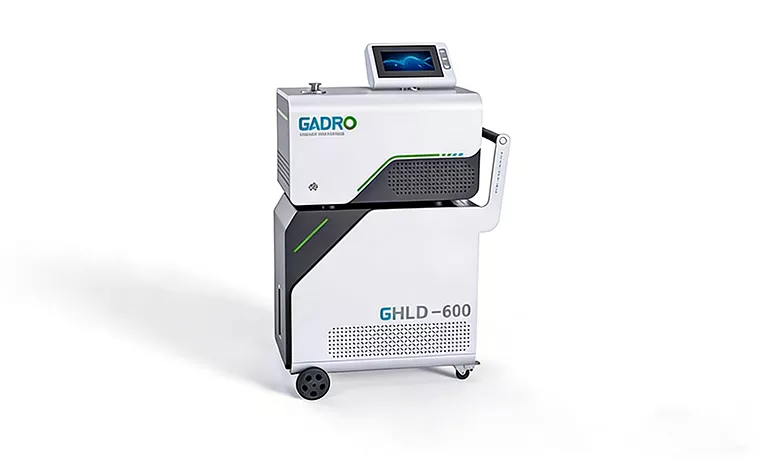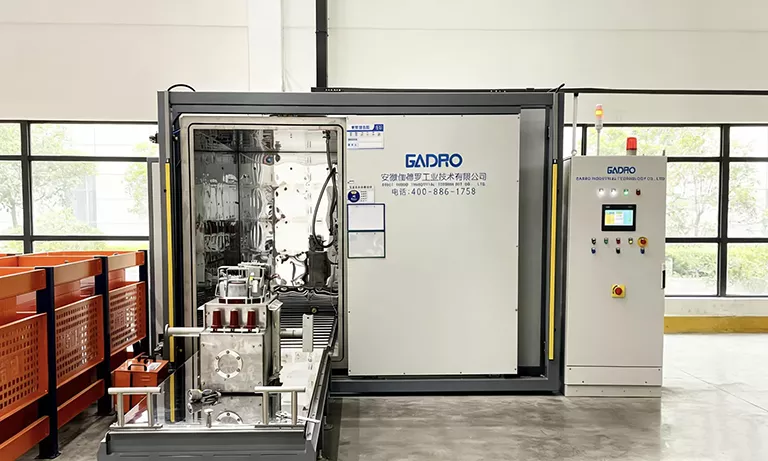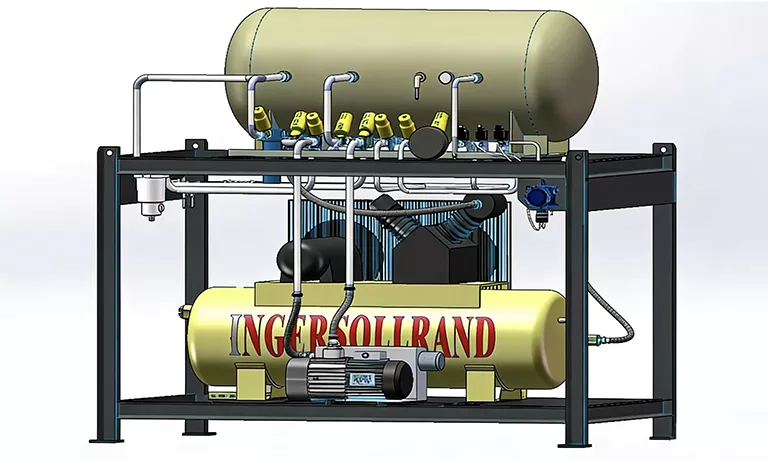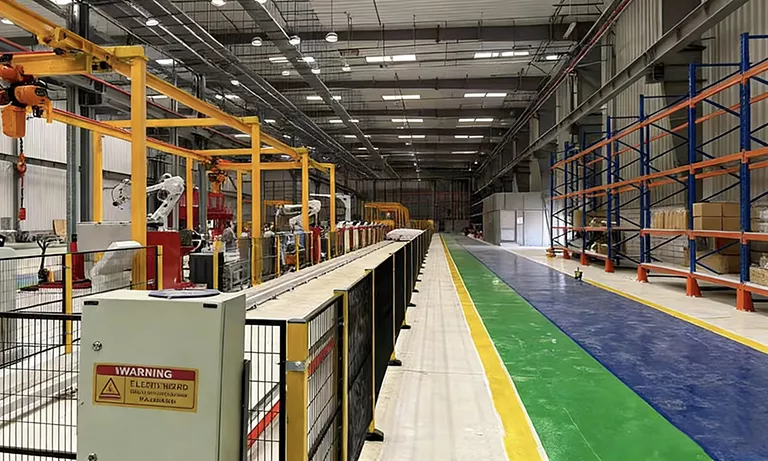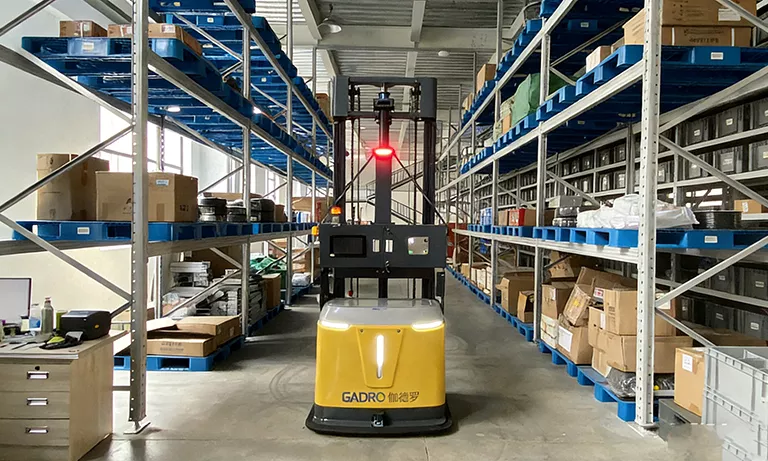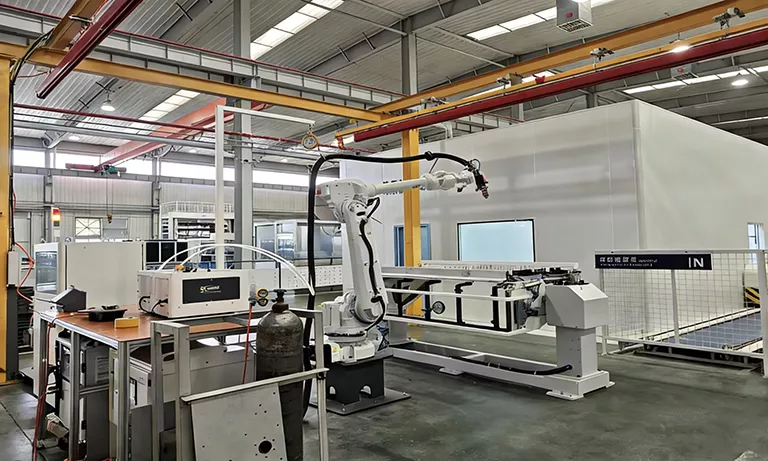Helium-Lecksuchgerät spielen aufgrund der Eigenschaften von Helium (wie niedriges Molekulargewicht, hohe Diffusivität und geringe Reaktivität mit anderen Substanzen) in vielen anspruchsvollen Anwendungen eine wichtige Rolle.
Hauptanwendungsgebiete:
Luft- und Raumfahrt
Raketen und Raumfahrzeuge: Wird verwendet, um die Luftdichtheit von Raketentriebwerken, Raumfahrzeugen und anderer Ausrüstung zu prüfen, um sicherzustellen, dass während des Startvorgangs kein Helium austritt, und um die Zuverlässigkeit des Systems sicherzustellen.
Satellit: Wird verwendet für Helium-Lecksuche in Kühlsystemen und Satelliten-Treibstoffsysteme.
Halbleiterindustrie
Vakuumsystem: Im Halbleiterherstellungsprozess herrscht eine Hochvakuumumgebung. Helium-Lecksuchgerät kann die Abdichtung der Ausrüstung gewährleisten und Verschmutzung sowie nachteilige Auswirkungen vermeiden.
Gasleitungen und -geräte: dienen der Erkennung von Lecks im Gasversorgungssystem der Halbleiterproduktionslinie, um Verluste zu verhindern und den normalen Betrieb der Geräte sicherzustellen.
Kernenergieindustrie
Kühlsystem von Kernreaktoren: Helium wird als Kühlmittel im Kühlsystem von Kernenergieanlagen verwendet. Heliumlecksuchgeräte können Heliumlecks effektiv überwachen und Systemausfälle verhindern.
Gasgekühlter Reaktor: In diesem Reaktor wird Helium zur Kühlung des Reaktorkerns verwendet, und Heliumlecksuchgeräte werden verwendet, um Heliumlecks in Echtzeit zu überwachen.
Kryotechnik und supraleitende Ausrüstung
Supraleitende Magnete und Geräte: Werden zur Heliumleckerkennung im Kühlsystem supraleitender Materialien verwendet, um einen stabilen Betrieb der Geräte bei extrem niedrigen Temperaturen zu gewährleisten.
Kryogenes Kühlsystem: Im kryogenen Flüssighelium-Kühlsystem wird der Helium-Leckdetektor verwendet, um das Austreten von Helium zu überwachen und so Kühlausfällen vorzubeugen.
Gas- und Petrochemieindustrie
Gastransport und -lagerung: Wird in Transport- und Lagerungssystemen für Gase wie Helium, Erdgas und Wasserstoff verwendet, um Heliumlecks in Pipelines, Lagertanks und Gaslieferungsgeräten zu überwachen.
Gastrennungsanlagen: Bei der Gastrennung und Verdichtung werden Helium-Lecksuchgerät kann kleine Lecks rechtzeitig erkennen und so Gasverlust und Fehlfunktionen vorbeugen.
Medizinische Ausrüstung
Magnetresonanztomographie-Geräte: MRT-Geräte verwenden flüssiges Helium als Kühlmittel und Geräte zur Erkennung von Heliumlecks helfen, die Dichtheit der Ausrüstung zu überwachen, um den normalen Betrieb des Kühlsystems sicherzustellen.
Medizinische Gasausrüstung: wie z. B. die Verwendung von Helium-Sauerstoff-Mischgasflaschen, Helium-Lecksuchgeräte kann die Dichtheit gewährleisten und Leckagen vermeiden.
Elektronik- und Energieindustrie
Hochspannungsgeräte: In Hochspannungsgeräten sind Helium-Lecksuchgeräte werden zur Erkennung von Gasdichtungen verwendet, um Fehlfunktionen elektrischer Geräte aufgrund mangelhafter Abdichtung zu verhindern.
Leistungstransformatoren und Schaltanlagen: Helium-Lecksuchgeräte werden zum Erkennen von Gaslecks in Hochspannungsgeräten verwendet, um den sicheren und effizienten Betrieb der Geräte zu gewährleisten.
Vakuumanlagen und Teilchenbeschleuniger
Teilchenbeschleuniger: Beispielsweise verwenden Geräte wie der Large Hadron Collider ein Vakuumsystem. Helium-Lecktestsystem kann winzige Lecks genau erkennen und die Vakuumumgebung des Systems sicherstellen.
Vakuumsystem: Wird für verschiedene Geräte verwendet, die eine Umgebung mit extrem hohem Vakuum erfordern, wie z. B. Vakuumöfen in Labors, Vakuumbeschichtungsgeräte usw.
Lebensmittel- und Verpackungsindustrie
Verpackung unter Schutzatmosphäre: Helium-Lecksuchgerät werden verwendet, um Heliumlecks in Verpackungsbeuteln mit modifizierter Atmosphäre zu erkennen, um die Unversehrtheit der Verpackung sicherzustellen und die Haltbarkeit von Lebensmitteln zu verlängern.
Kühlkettentransport: Während des Kühlkettentransports müssen Helium-Lecksuchgeräte kann zum Erkennen von Heliumlecks in Kühlsystemen verwendet werden, um die Kühleffizienz sicherzustellen.
Mineralexploration und Ölexploration
Unterirdische Gaserkennung: Helium-Lecksuchgeräte kann zur Überwachung unterirdischer Gaslecks verwendet werden, insbesondere bei der Erdgasexploration und im Mineralienabbau können Heliumlecks rechtzeitig erkannt werden.
Ozean- und Unterwasserausrüstung
U-Boote und Unterwasserausrüstung: Helium-Lecksuchgeräte kann zur Luftdichtheitsprüfung von U-Booten, zur Tiefseeerkundung und anderen Geräten in Unterwassersystemen verwendet werden.
Ölförderung und Prospektion in der Tiefsee: Bei Tiefseeoperationen werden Heliumlecksuchgeräte benötigt werden verwendet, um die Abdichtung und Sicherheit von Geräten zu gewährleisten.
Automobile und Transport
Wasserstoff-Brennstoffzellenfahrzeuge: In Wasserstoff-Brennstoffzellenfahrzeugen Helium-Lecksuchgerät dienen der Leckageerkennung im Gasspeichersystem.
Klimaanlagen und Kühlsysteme für Kraftfahrzeuge: Erkennen Sie Heliumlecks im Kühlmittel der Klimaanlage des Fahrzeugs, um den effizienten Betrieb der Klimaanlage sicherzustellen.
Forschungs- und Laboranwendungen
Physikalische Experimente: In Laboren der Teilchenphysik, Atomphysik usw. werden Helium-Lecksuchgeräte verwendet, um die Luftdichtheit von Versuchsgeräten genau zu überwachen.
Chemische und biologische Forschung: Wird zur Überwachung von Gaslecks in Forschungsgeräten verwendet, um die Stabilität der Versuchsumgebung sicherzustellen.
Umweltüberwachung
Gasüberwachung: Helium-Lecksuchgeräte können zur Umweltüberwachung eingesetzt werden, beispielsweise in Bereichen, in denen Erdgas-, Wasserstoff- und andere Gaslecks überwacht werden müssen, in Gaspipelines, Gasspeicherstationen usw.
Geräte zur Heliumlecksuche spielen in Hightech- und Hochrisikobranchen wie der Luft- und Raumfahrt, Energie, Medizin, Elektronik und Petrochemie eine entscheidende Rolle.

